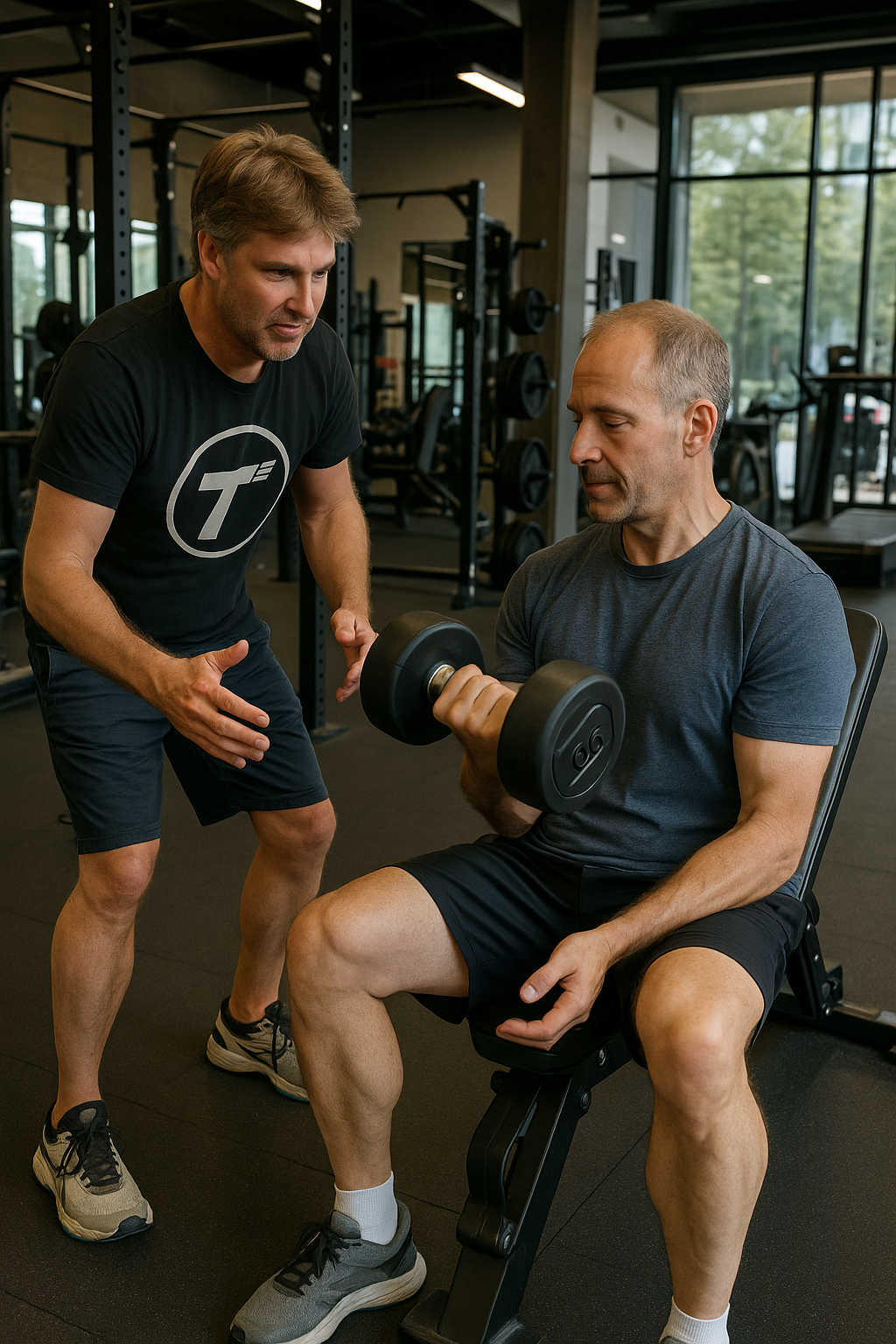
By Troy Tyrell | WBN News Vancouver | July 29, 2025
📢 Subscription to WBN and being a Contributor is FREE.
👉 Click here to begin reading or writing with us!
On a rainy Tuesday morning at a Downtown Vancouver gym, a man in his late 40s hammers away on the treadmill, earbuds in, sweat flying. A few machines over, another lifter grunts under a barbell stacked with plates. Both are regulars, both put in the time, but neither is seeing the change they want.
Local trainers say this is common. Many men over 40 are unintentionally undermining their own progress. It is not a lack of motivation, it is the wrong approach for a body that has changed with age.
1. Sticking to the Same Routine as 20 Years Ago
Metabolisms slow, recovery times lengthen, and joints are less forgiving. Yet many men train exactly as they did in their 20s, chasing old personal bests or clinging to familiar workouts.
The takeaway: Adaptation is key. Workouts need to match current abilities, not past glories.
2. Too Much Cardio, Not Enough Strength
Cardio has benefits for heart health, but relying on it alone can accelerate muscle loss after 40. That loss can slow metabolism and affect everyday strength.
The takeaway: A balanced program that includes resistance training helps maintain muscle mass. This in turn supports long-term health and function.
3. Skipping Mobility Work
Mobility often falls to the bottom of the list. Tight hips, stiff shoulders, and back pain can creep in over decades, especially for those with sedentary jobs.
The takeaway: Regular mobility and stretching work can improve joint health, posture, and the ability to keep moving comfortably into later decades.
4. Training Without a Plan
Many men drift from machine to machine or follow the same weights and reps for years. Without progression or variation, the body adapts and stops improving.
The takeaway: Structured training plans, whether self-designed or guided, help ensure consistent challenge and measurable progress.
5. Underestimating Recovery
In younger years, pushing through fatigue might not have carried much consequence. Past 40, it can mean injuries that take months to heal.
The takeaway: Recovery is part of training, not an afterthought. Adequate rest, sleep, and active recovery days make hard sessions more effective.
Why This Matters in Vancouver
The city’s active culture, from hiking the Grouse Grind to weekend cycling on the Seawall, can keep expectations high. But without the right adjustments, those activities may feel harder than they should or lead to overuse injuries.
Experts agree. With age, the smartest athletes are the ones who adapt. The goal is to stay in the game for decades, not just win the next workout.
By Troy Tyrell, Founder of Tsquared Personal Training
WBN Contributor | Community Builder | Mountain Biker | Advocate for Local Business & Fitness
📍 Google Business Profile – Tsquared Personal Training,
🔗 Connect on LinkedIn
📘 Follow on Facebook
#Men Over 40 Training #Strength Training Vancouver #Personal Training For Men #Functional Fitness Over 40 #Troy Tyrell #WBN News Vancouver #Vancouver Fitness

